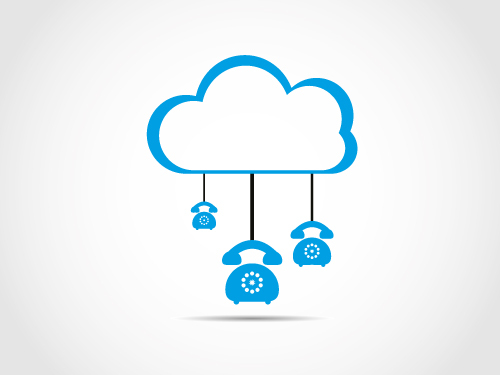Business
The Advantages and Disadvantages of Cloud VoIP
One of the many benefits of using VoIP technology for your business is the ability to make and receive voice and/or video calls no matter where your employee is in Singapore or outside the country. When it comes to choosing which type of VoIP service is right for your business, however, you also need to know how it’s done.
You might hear unfamiliar terms from your VoIP service provider in Singapore such as cloud VoIP, hosted VoIP system, hosted PBX, etc., and not know what type of service you’re getting. Although the basic principles of all VoIP services are the same, there are a few differences that you need to consider.

Let’s look at cloud VoIP and find out why it’s the most recommended VoIP service for small and medium-scale businesses.
History of VoIP Technology
Voice over Internet Protocol (VoIP) was once a niche technology that has now become indispensable in businesses not just in Singapore, but the rest of the world. The history of VoIP is tied up with cloud computing because their potential became known during the advent of the Internet’s precursor, Advanced Research Projects Agency (ARPANET), and its successful two-way voice communications. Then in 1975, the first cellular phone call was made possible through Motorola, which opened avenues for further developments in the VoIP Singapore industry.
It was not until the mid-1990s when VoIP and hosted PABX technology took off when Internet became accessible to a lot of people. In 1995, the first Internet phone was invented, but it did not become a popular tool for communication, because it needed a lot of equipment to make a successful call.
Significant changes were made when manufacturers decided to produce hardware that allowed computer-to-phone and phone-to-computer calls and call switching. Switching refers to the conversion of a voice packet into digital packets using a switch, so that it can be read by the public switched telephone network (PTSN). This breakthrough meant that VoIP from www.crystalvoice.com.sg in SIngapore no longer needs to rely on computer and other hardware to make calls through the Internet
History of Cloud Computing
Cloud computing is considered an invaluable tool in information technology infrastructures and businesses, but not everyone knows it has been around for some time and has gone through so many changes. The principle of cloud computing relies on the idea that you do not need a lot of machines to store information that can be accessed by more than one individual. In the 1950s, multiple machines had to be installed in institutions that needed a computer and a number of terminals so they can be accessed by a lot of people.
In the 1970s, the idea of virtualization was realized when multiple computers were able to access and share the same processing environment and resources. This meant that it was possible to increase network solutions without having to use more equipment. The development of cloud computing accelerated when the Internet became available to a lot of people, and computers were used not just in offices, but also at homes.
In the early 2000s, VoIP Singapore third-party providers for storage, applications, and computation solutions appeared to cater to the growing needs of different businesses. The recent trend in cloud computing has allowed companies to choose whether they want to hire a third-party for the resource or to set up their own private cloud instead of using a public cloud for more security.

What Cloud VoIP Means
Cloud VoIP, or cloud telephony, refers to the voice and other services that replace the conventional telephone equipment, like the hosted PBX. PBX means private branch exchange, or the connection between a central switch and a telephone system used by a company. What these all means is that all the employees within the company can make calls to other employees, but other people outside the company can still receive calls from and make calls to that company. In cloud VoIP, however, all the equipment will be provided in a data center and only the telephones or other devices will be found in the office.
Some companies, however, prefer their own telephone system, but do not want to host the server. Cloud hosted PABX is a type of hosted PBX or hosted telephony service, which means that the server is hosted in another location to reduce network connectivity costs and simplify multiple site connectivity.
Some VoIP service providers might also mention the term hybrid, which means that some of your company’s sites can be premise-based with servers dedicated to a location, and your company also has the technology and is hosting some of the data within the premises.
Disadvantages of Cloud VoIP
Although cloud VoIP can offer the same benefits as other VoIP services such as an IP PBX telephone system, it has its downsides.
-
1. The voice quality is not guaranteed unless you can manage the VoIP connections
2. You will be dependent on the vendor if it is a hosted VoIP system
3. You will be dependent on the vendor’s data center or the public Internet if it’s a hosted VoIP system
4. There may be outside disruptions if your Internet service provider frequently drops the Internet service
5. Your company will need to purchase IP phones, router, ethernet, and ethernet cords
Advantages of Cloud VoIP
With cloud VoIP for your business, you will get the same benefits of a PBX phone system or hosted PABX that bigger VoIP Singapore companies use.
-
1. You will save more with local and international calls if you’re a small business
2. There is no need to run your own phone system like the PBX phone system
3. You will only pay for what you need if it’s a hosted PBX
4. Your employees don’t need to be at the desk to make calls, similar to an IP PBX telephone system
5. It’s easy to use and has a low start-up cost that is ideal for small businesses

Things to Consider When Choosing an Accounting Software
Still in the process of choosing an accounting software for your small Singapore business? Well, you have a lot of good choices: Accpac, AccountEdge, Microsoft Great Plain, Microsoft Solomon, MYOB, Netsuite, Peachtree, Quickbooks, Simply Accounting, and many more.

When utilized properly, these software’s can be of great help to your business – but it could also cause some problem in your company if used without adequate planning. To avoid such incident from happening, here are some of the things that you might want to consider before purchasing an accounting software.
1. Capability
In choosing a good accounting software, your first step should be to assess the accounting needs of your business. Do you sell goods or provide services? If your business sells products, then the accounting system that you get should be capable of tracking your inventories; if you sell services, then your software should have a client tracking feature.
Either way, your accounting software should be able to meet your invoicing, tax reporting, and payroll needs in addition to the accounting features needed to monitor the ongoing sales and expenses of your business. Be careful though, since purchasing an oversized software program might end up burdening your accounting department with an impractical bookkeeping system.
2. Software Growth
Company growth is part of each entrepreneur’s long-range business plan, which is why it’s important that your accounting software is capable of expanding alongside your business. Going for such software won’t just help you to efficiently monitor your business, it will also save you from unnecessary costs and headaches as your business expansion takes place.
Most Singapore accounting software providers design their products with expansion in their mind. You can ask your business associates in Singapore, many of them actually recommend Rockbell suite of accounting systems in Singapore for their ease of usage. Look for a provider who would allow you to purchase some expansion components for your system or upgrade it to a larger system at a reasonable, or discounted price. Just remember to buy your software from a reputable company that will still be in business by time you want to upgrade your system. If they are no longer around by that time, then you are likely to start all over again using a different system.
3. System Compatibility
Other than the software’s capability to expand, system compatibility is another factor that you should consider in choosing an accounting software. The most common concern about this is whether or not the new software will be compatible and will function using the current operating system of オンライン カジノ your computer. Aside from that, it’s also important to know if your new software is capable of importing your data from your current spreadsheet or accounting program. If you can’t seem to import your data, then you’ll have to re-enter a particular amount of your old financial data to your new system, especially if you’re transitioning to the new system during the mid-year.

4. Software Accessibility
Ease of use, despite being extremely important, is one of the aspects that is often overlooked when it comes to choosing an accounting software. Remember that regardless of how great or how inexpensive your chosen software is, if it’s too difficult to learn and use, you’ll end up not using it.
So when you buy software packages, just keep it simple and focus on what your business really needs. Also, look for programs with easy interfaces and is open for upgrades for your future business expansion.
5. Software Costs
The costs involved in getting a software package has always been one of the important considerations and, to some degree, the software’s efficiency is determined by the amount that you are willing to pay.
The prices for accounting software programs vary widely. Some programs are sold around $100, but these programs usually have limited expandability and no consistency. The more reliable software programs costs around hundreds or thousands of dollars, depending on your business needs and size.
Purchasing an accounting software is a wise investment to have for your big or small Singapore business. Just be diligent in implementing and learning to use your software package, and in no time, you’ll find that its financial outlays will start paying for itself by enhancing the productivity and efficiency of your company.

The Importance of Eye Contact
You are walking in the streets of Singapore and suddenly you established eye contact with fellow Singaporean and he/she smiled. You smiled back in return. That smile can go a long way if you just appreciate the simple gesture. In another case, you are worried about your interview but when you established eye contact, the employer understood your sincerity and so the conversation went nicely. The employer considered you among others.

In the situations provided above, you can infer that eye contact can make a difference at the end of the day. The ability to establish and maintain eye contact is important. It is a skill that should be taught to everyone no matter how awkward or challenging it is. It is crucial that you become adept at eye contact because it can take you far.
Eye contact should never be underestimated. To convince you of the importance of eye contact, you can read further.
- Eye contact has a role in developing emotional stability: Studies show that people who are adept at eye contact are dominant, powerful, warm, likeable, confident, honest, sincere, skilled, valuable, competent and many more. Actually the list goes on.
- Eye contact has a role in developing social functions: Believe it or オンライン カジノ not eye contact has a role in developing your emotional stability. It can help build connections and rapport. If you made connections, it will pave way to intimate bonds. It will then improve the quality of your interactions to others.

- Eye contact can tell your thoughts and feelings: Remember the saying that “eyes are the window of the soul”? Cliché as it may sound but it is true. Your eyes will reveal your thoughts and feelings. Your eyes will give you away. We always refer to the eyes of a person when we connect to him/her. For example, we are drawn to eyes that “twinkle” or “glow” or we are afraid of “evil eyes”.
- Eye contact shows your attention: You give your attention or acknowledgement to someone in different ways. Sometimes you nod, sometimes you wave or sometimes you just say “yes”. The eyes can also serve as your acknowledgement. If you capture the eyes of the person you are talking, that means he/she is really tuned in to what you are saying.
There are people who find eye contact very hard. It can be very hard sometimes especially if you are hiding something or you are deceiving someone. Holding the truth is hard that the eye cannot bear to look at others. It is important that you overcome this and practice establishing eye contact because it can help you deal with things and others. Do not underestimate eye contact.

